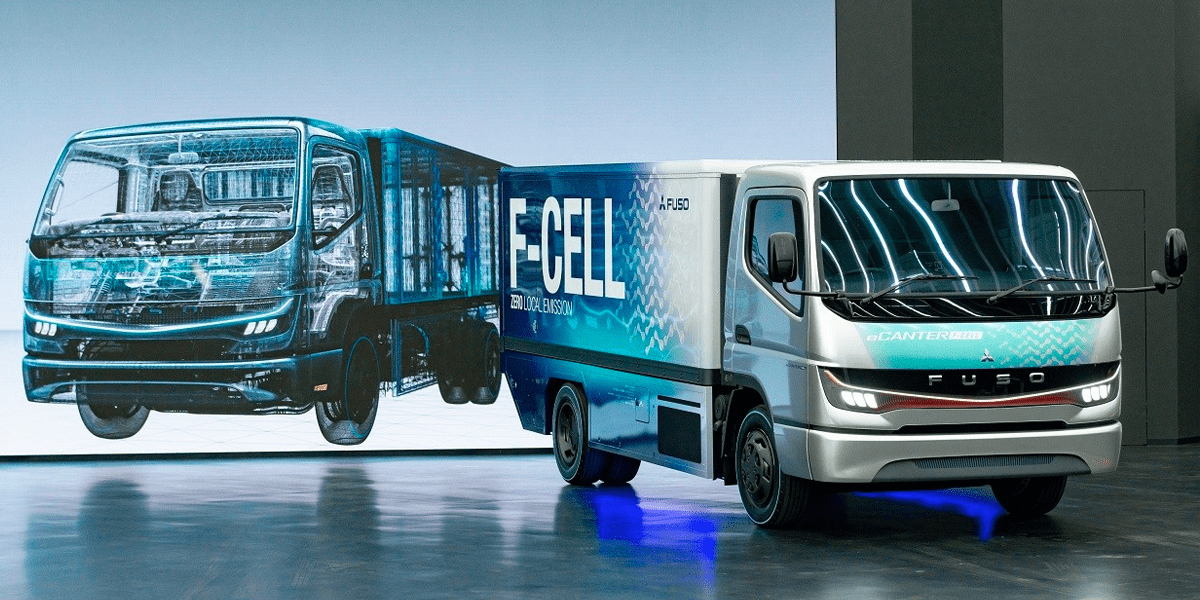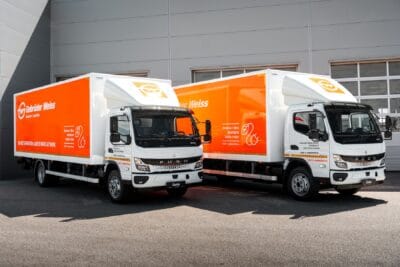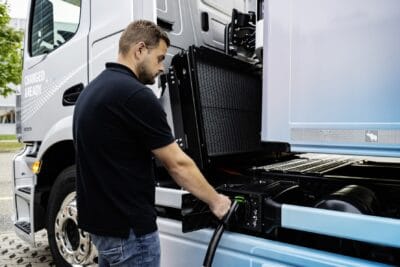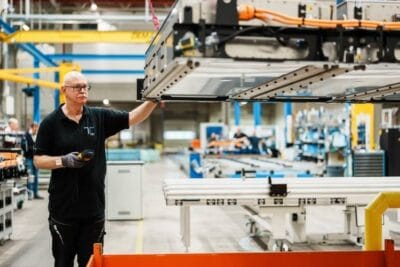Fuso presents FC truck concept and announces serial plans
The Mitsubishi Fuso Truck & Bus Corporation (MFTBC) announces the intention to start series production of fuel cell trucks “by the end of the 2020s”. The Japanese commercial vehicle manufacturer, which belongs to the Daimler Group, is also presenting the concept of the eCanter F-CELL.
A few months ago, Daimler Trucks & Buses already made it clear that it intends to expand its product range to include hydrogen-powered series-production vehicles by the end of the decade. The Japanese subsidiary has now announced that it plans to take the lead in the development of this vehicle type. “Both battery-powered and fuel-cell vehicles have their respective advantages depending on customer use-case, and the two varieties will complement each other to address ever-diversifying transportation needs,” MFTBC stated in a press release.
Fuso already provided an outlook on future hydrogen-powered commercial vehicles last October with the Vision F-Cell at the Tokyo Motor Show. The new concept is called eCanter F-CELL and is a further development of this lightweight truck prototype. This is also a light commercial vehicle; according to MFTBC, the range is 300 kilometres and the refuelling time less than ten minutes. These are currently all the data that the Japanese company has made public.
As far as alternative drive systems are concerned, the Daimler subsidiary is currently best known for the battery-powered Fuso eCanter. In 2017, the fully electric 7.5-tonne truck, which is produced in small series, will be delivered to selected customers for the first time. According to a recent announcement by the Japanese company, 150 units are now in use worldwide. Large-scale production of the second electric Daimler commercial vehicle undergoing customer testing, the Mercedes eActros, is also not yet planned. But Daimler does not want to hesitate any longer: The first electric trucks in mass production are scheduled to arrive in 2022. And just as in the passenger car sector, the Commercial Vehicles division plans to introduce a CO2-neutral fleet by 2039 – although this goal is limited to the main sales regions of Europe, the USA and Japan.
To drive forward electrification in the commercial vehicle sector, Daimler founded an internal research and development organisation called the Electric Mobility Group in 2018. MFTBC is working under the umbrella of this group, according to its statements, “on future electric models for all Fuso truck and bus segments”. Besides, the next generation of the eCanter is currently being developed. MFTBC boss Hartmut Schick attests his company “a leading role in the realisation of the electrification of commercial vehicles”. To realise the vision of CO2-neutral transport industry, subsidies for electric vehicles and chargers are also essential.
Daimler Truck CEO Martin Daum recently expressed similar sentiments. In his eyes, alternative drives in trucks will not become a matter of course. Since customers who are very much concerned with the total cost of ownership will incur additional charges for electric vehicles (regardless of whether they have batteries or fuel cells), government support is necessary, he said. “In the year 2040, too, the acquisition and total operating costs of trucks and buses with electric drive will be even higher than those of diesel vehicles, despite all efforts on the part of manufacturers,” said Daum. “We, therefore, need government intervention to make locally CO2-neutral trucks and buses competitive”.
With reporting by Cora Werwitzke, France.
mitsubishi-fuso.com, mitsubishi-fuso.com (Delivery)





0 Comments